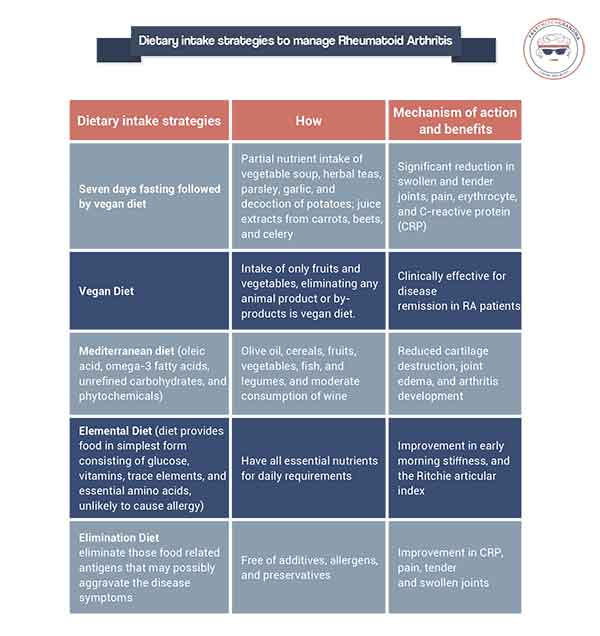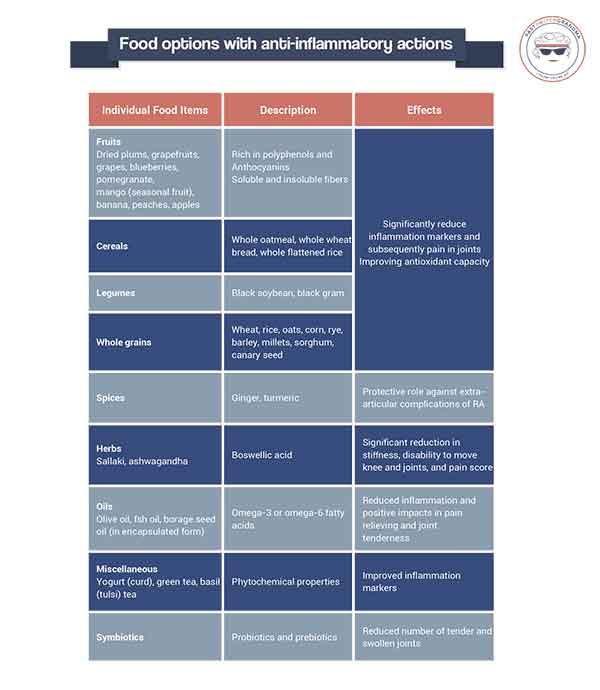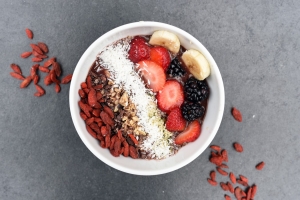Dietary Strategies For Managing Rheumatoid Arthritis

Mojtaba Kaviani, Ph.D., CEP
Rheumatoid arthritis (RA) is a chronic condition in which the body’s immune system mistakenly attacks its joints. Approximately 1 percent of all individuals across the world are affected by this chronic disease. As the incidence of RA increases at an alarming rate, new therapeutic methods have been developed to treat it. However, we still do not have a clear understanding of what causes rheumatoid arthritis. Therefore, this field of research needs to gain more insight on how RA can be diagnosed earlier to prevent further damage to the joints.
Common Symptoms of Rheumatoid Arthritis
Gastrointestinal tract issues, such as bloating, nausea, burning, belching, constipation, and diarrhea are commonly observed in patients with RA. Thus it appears that an altered intestinal microbiota is to some extent the cause of the subsequent development of an abnormal condition of RA. Recently, the Littman laboratory identified a significant prevalence of Prevotella copri in RA patients, when compared to healthy controls. This provides the support that the “gut-joint axis” hypothesis is relevant for human rheumatic diseases and may lead to pathogenesis of RA.
There have been several drugs recommended by doctors to treat RA. However, we still have no clear idea how they work! Therefore, rheumatologists need to begin to work on dietary intake modifications, due to the potential link between the gut and the joints.
Related Article: Get Active With Rheumatoid Arthritis
Effective Dietary Strategies for Patients with Rheumatoid Arthritis

Recommended Foods with Anti-Inflammatory Actions

Takeaways
- Consume meals including raw or moderately cooked vegetables. Make your plate green and colorful
- To spice it up, add turmeric and ginger
- Get antioxidants from seasonal fruits and probiotic yogurt
- Avoid refined/processed foods and salty foods
- Ensure that you take adequate vitamin D
Finally, I know this article has been all about RA and dietary intake strategies, but adding low-impact physical activity is always beneficial!
Related Article: High-Intensity Exercise with Rheumatoid Arthritis
References
Shweta et al. (2017). Managing Rheumatoid Arthritis with Dietary Interventions. Frontiers in Nutrition,4,52 DOI=10.3389/fnut.2017.00052
Vaghef-Mehrabany et al (2016). Effects of probiotic supplementation on oxidative stress indices in women with rheumatoid arthritis: a randomized double-blind clinical trial. J Am Coll Nutr 35(4):291–9. doi:10.1080/07315724.2014.959208
Tedeschi SK, Costenbader KH (2016). Is there a role for diet in the therapy of rheumatoid arthritis? Curr Rheumatol Rep,18(5):23. doi:10.1007/s11926-016-0575-yYou Might Like:
















